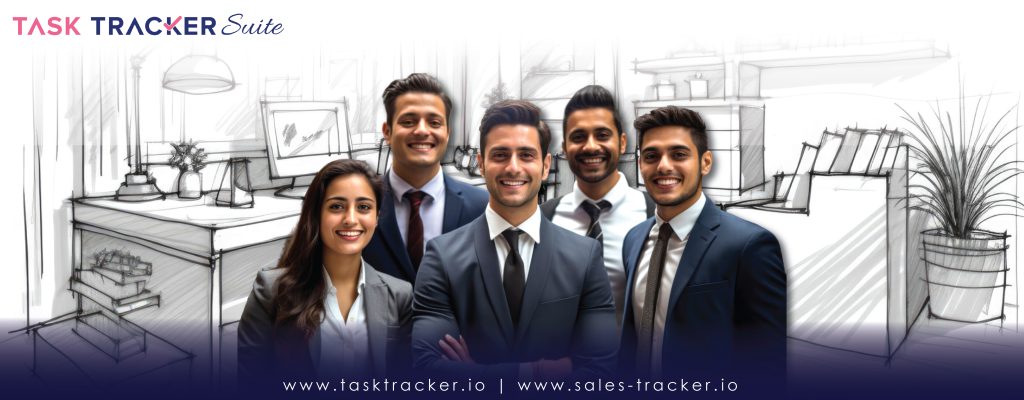
Teamwork is the key to success in any business. Whether launching a new product, solving a complex problem, or delivering excellent customer service, working together as a team can make all the difference.
But teamwork is not always easy. Many companies struggle to foster effective employee collaboration, especially in today’s fast-paced and diverse work environments. Communication gaps, lack of trust, and unclear roles are the common problems that impact teamwork.
In this blog post, you’ll learn practical strategies to overcome these challenges and improve teamwork at your workplace.
Common Teamwork Challenges
Before diving into the strategies for improving teamwork, let’s look at some specific challenges different teams may face.
Remote Teams
Remote teams are becoming more common as more companies adopt flexible and hybrid work models. Remote teams can offer many benefits, such as increased productivity, reduced costs, and access to a broader talent pool. However, remote teams also face some unique challenges, such as:
- Lack of face-to-face interaction: It may miss out on the social and emotional aspects of teamwork, such as rapport, trust, and camaraderie.
- Difficulty in coordination: Remote teams may have different time zones, schedules, and work styles, making it harder to coordinate and collaborate effectively.
- Isolation and disconnection: Team members may feel isolated and disconnected from their colleagues and the company culture, leading to lower engagement and satisfaction.
Large Teams
Large teams can offer many advantages, such as more resources, skills, and ideas. However, there are some challenges as well, like:
- Too many people and opinions may create communication and teamwork hurdles.
- In large teams, some members may reduce their effort or contribution, relying on others to do the work. This can lead to lower performance and quality of work.
- Bigger teams may experience more conflict and competition because of different interests, agendas, and personality types.
Diverse Teams
With diverse teams, you get more creativity, innovation, and problem-solving. However, they also face certain challenges, such as:
- Cultural and linguistic differences: Team members may have different cultural and linguistic backgrounds, affecting their communication, behaviour, and expectations.
- Stereotypes and biases: They may encounter stereotypes and biases, which may affect their perception, judgement, and interaction with each other.
- Resistance and conflict: Diverse teams may face resistance and conflict. As some team members may not be comfortable or willing to work with different people.
Strategies for Improving Teamwork at the Workplace
Here are some effective strategies that can help you overcome the challenges mentioned above and improve workplace collaboration.
Active Listening and Constructive Feedback
Active listening can help team members build rapport and trust, clarify and avoid misunderstandings, show respect and empathy, and learn and improve. You can align mandatory training for active listening to enhance teamwork in your organisation.
Another essential skill for effective teamwork is constructive feedback. This will help your team members recognise their strengths and weaknesses and stay motivated to improve their performance.
Effective Conflict Resolution
Conflict is inevitable as your team members may have different opinions, interests, and personalities. However, conflict is not necessarily destructive, as it can also lead to more creativity and innovation, better decision-making and problem-solving, higher engagement and commitment, and stronger relationships and trust.
The key to effective conflict resolution is to adopt a constructive approach. Where team members focus on finding solutions and achieving common goals rather than blaming or competing with each other. To adopt a constructive approach:
- Understand the root cause and impact of the conflict.
- Communicate openly and respectfully.
- Seek common ground and mutual interests to agree on a fair and feasible solution.
Celebrating Successes and Achievements
Celebrating successes and achievements can boost your team’s morale and motivation, strengthen bonds and loyalty, enhance confidence, and reinforce their values and goals. For that,
- Set and track clear and measurable goals.
- Share and celebrate progress and results individually and collectively.
- Acknowledge and appreciate each other’s contributions and efforts.
- Reward and incentivise team performance and behaviour.
- Learn and improve from your team members’ feedback and experience.
Leveraging Task Management Tools
A Task management tool can help you plan, delegate, and monitor tasks. You can use it to:
- Define and assign tasks and subtasks.
- Set and track deadlines and priorities.
- Create and update timelines and schedules.
- Manage and allocate resources and budgets.
- Track progress and performance.
One of the best task management tools available is Task Tracker. It lets you collaborate and communicate with your team members in real time. Using built-in chat, WhatsApp notification and email integration features. You can also tag and notify your team members and get instant updates and feedback on your tasks.
Final Thoughts
Teamwork is essential for any business to succeed and grow. However, it is not always easy, as teams may face challenges and difficulties working together. You can try the strategies mentioned above to transform teamwork in your company.
To implement these strategies better, you can use Task Tracker, a powerful and easy-to-use task-tracking tool. To test it, sign up for a free trial and see how this revolutionary software can help you improve teamwork at your organisation.


Leave a Reply